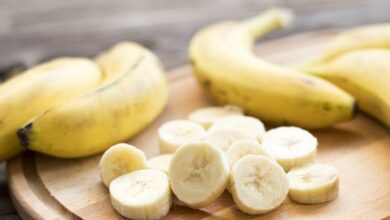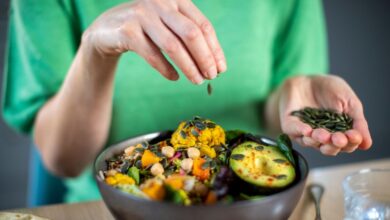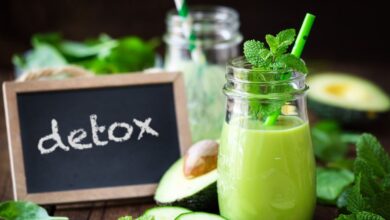What to Eat and What to Avoid with Endometriosis

- What is Endometriosis?
Endometriosis is a common gynecological condition where tissue similar to the lining of the uterus grows outside of it, affecting other organs in the pelvic region. When endometriotic tissue covers the ovaries, it can lead to the formation of endometriotic cysts (chocolate cysts). In advanced stages, it can cause adhesions.
- Symptoms of Endometriosis
The most pronounced symptom is pain, which intensifies during menstruation. Apart from lower abdominal pain, it can radiate to the back and limbs. Pain during or after sexual intercourse and abnormal bleeding outside of menstruation are also common. Nausea, bloating, accompanied by cramps or diarrhea, and frequent fatigue are reported. Women with endometriosis often face difficulties in conceiving.
- Foods that Negatively Affect the Body in Endometriosis
Certain foods are believed to increase the risk of developing endometriosis. Foods high in trans fats, often found in pastries, fast food, biscuits, wafers, pastas, cakes, popcorn, and occasionally in fried potatoes, are considered unsuitable for women with endometriosis and should be avoided. Some studies link an increased risk of endometriosis with the consumption of red meat in large quantities. It can be replaced with fish, poultry, soy products (tofu), seitan, etc. Alcohol and caffeine are believed to exacerbate the condition. A study with over 200 women with endometriosis found that 75% experienced reduced pain and bloating after eliminating gluten from their diet.
- Foods that Have a Positive Impact
Foods that may have a better effect on overall health include:
- Iron-rich foods like beans – bean, soy, chickpeas; nuts and seeds; dark leafy vegetables – kale, spinach, broccoli, cabbage, etc.
- Foods rich in essential fatty acids and omega-3, such as sardines, trout, salmon, herring, as well as swordfish, anchovies, oysters, mussels, nori (seaweed), flaxseeds, chia seeds, pumpkin, and hemp seeds, rapeseed oil, eggs, walnuts, etc.
- Antioxidant-rich foods – dark chocolate, oranges, blueberries, blackberries, strawberries, raspberries, beets, spinach, etc.
- Foods rich in vitamin D – salmon, mackerel, UV-exposed mushrooms, egg yolks, cheese, fortified foods, etc. Vitamin D intake can also be increased through sunlight exposure or vitamin D drops from natural sources. Low levels of vitamin D are associated with a higher risk of developing endometriosis, and it has been proven to have antioxidant and anti-inflammatory effects on the body.
Considering consultation with a dietitian to tailor an appropriate diet based on individual body characteristics is advisable.


